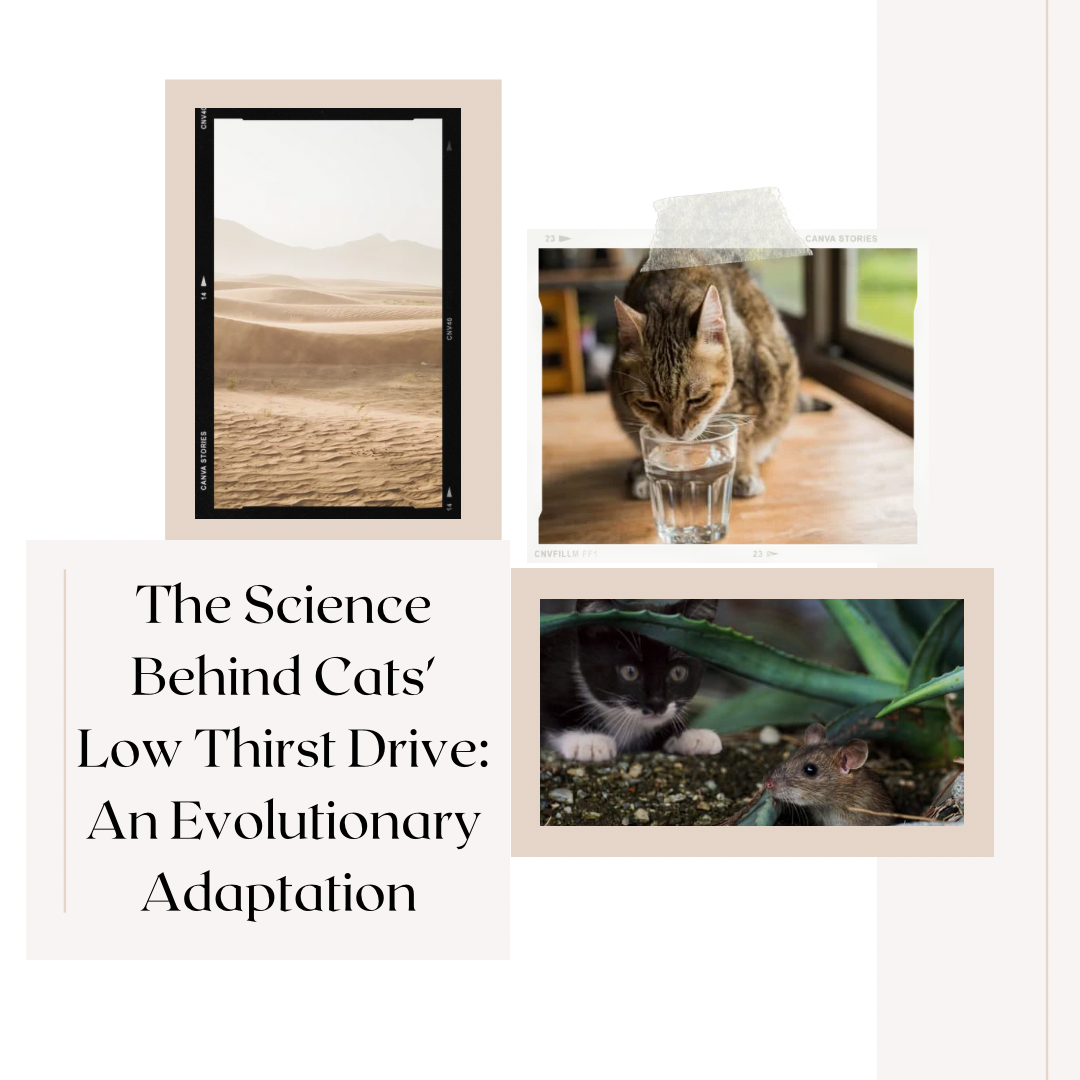Cats, specifically Felis catus, evolved from ancestors that inhabited arid regions with scarce water availability. This desert ancestry, where their predecessors predominantly consumed small prey, played a significant role in shaping their behavior towards water intake. A study published in the "Journal of Experimental Biology" (2010) reported that these wild ancestors, primarily getting their hydration from the prey they consumed, developed a low thirst drive as an evolutionary adaptation.
Understanding Obligate Carnivores and Their Hydration
In the wild, cats' prey not only provided the necessary nutrients but also up to 70-75% of their water requirements, according to a study in "Veterinary Clinics of North America: Small Animal Practice" (2015). As obligate carnivores, cats evolved to have a higher tolerance for water deficit and a more concentrated urine compared to many other mammals.
The Low Thirst Drive: An Ancestral Trait Retained
Moving into the modern age, domestic cats have held onto this low thirst drive, an intriguing trait from their wild past. Although their current lifestyle and diet have dramatically changed, their instinctual behaviors remain deeply rooted in their biology.
Implications for Domestic Cat Hydration
Given the low thirst drive, cats may not voluntarily drink enough water, particularly when fed a diet primarily of dry food, leading to a risk of chronic mild dehydration. A study published in "The Journal of Feline Medicine and Surgery" (2016) suggested that cats fed dry food diets have a lower total water intake and produce more concentrated urine than cats on wet food diets. This could potentially increase the risk of urinary tract issues, such as urinary crystals, bladder stones and urinary tract infections.
Ensuring Adequate Hydration in Cats
Understanding this trait is vital for cat owners and veterinarians alike to ensure proper hydration and overall health in domestic cats. It reinforces the importance of wet food in a cat's diet or, at the very least, a careful monitoring of water intake in cats primarily fed dry food


If have any questions, please contact us, our volunteers in Prague, Brno, Karlovy Vary and outside of Chech Republic will be happy to help.
We can recommend a veterinarian in your city, help with ordering food or provide assistance during a vet visit. If you need something else, don’t hesitate to write us, we’ll do our best to help your pet.
We can recommend a veterinarian in your city, help with ordering food or provide assistance during a vet visit. If you need something else, don’t hesitate to write us, we’ll do our best to help your pet.

All the information on this website is published in good faith and for general information purpose only. BedForPetPrague.org does not make any warranties about the completeness, reliability and accuracy of this information. Any action you take upon the information you find on this website (BedForPetPrague.org), is strictly at your own risk, BedForPetPrague.org will not be liable for any losses and/or damages in connection with the use of our website.

